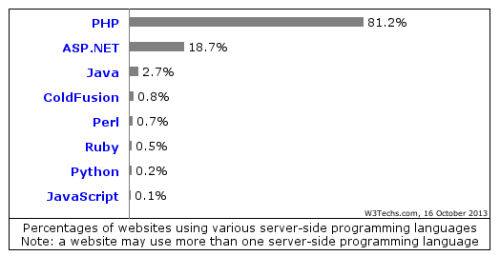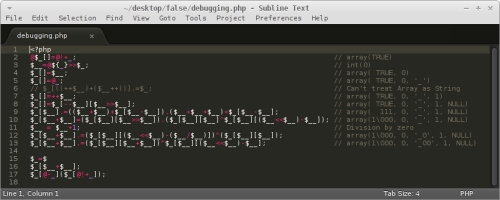Usage of server-side programming languages for websites
Tag: PHP
PHP 5.4.0 : Built-in web server
PHP: self:: vs. static::
I am seeing more and more PHP code with static:: key used for method calls instead of self::. Today I’ve finally found some time to examine the novelty. The page that is useful for more details is PHP’s late static binding. This functionality is available since PHP 5.3.0 so you might as well start using it.
I am a bit protective of my code, so self:: feels like a safer, more natural option. But after thinking about it for a bit, and discussing with my colleagues, I came to the conclusion that I should be using static:: instead of self::. It provides cleaner inheritance and minimizes code copy-pasting.
Non-alphanumeric backdoors
Beautifying PHP’s json_encode() output
I’ve been working a bit more with PHP and JSON recently and one of the things that annoyed me quite a bit was the single line output of the json_encode() function. Here is an example:
<?php $data = array( 'foo' => 'bar', 'bar' => 'qux', 'blah' => 'blah', ); echo json_encode($data); ?>
Poorly readable result (imagine having larger, more complex data structures like nested arrays):
{"foo":"bar","bar":"qux","blah":"blah"}
Apparently, since PHP 5.4.0 it became much easier to optionally format the output with some indentation. json_encode() function has an $options parameter, which was given an extra option – JSON_PRETTY_PRINT. Here is an updated example:
<?php $data = array( 'foo' => 'bar', 'bar' => 'qux', 'blah' => 'blah', ); echo json_encode($data, JSON_PRETTY_PRINT); ?>
And an updated output:
{
"foo": "bar",
"bar": "qux",
"blah": "blah"
}
Very handy for debugging and for those bits of JSON that should be editable by hand.

